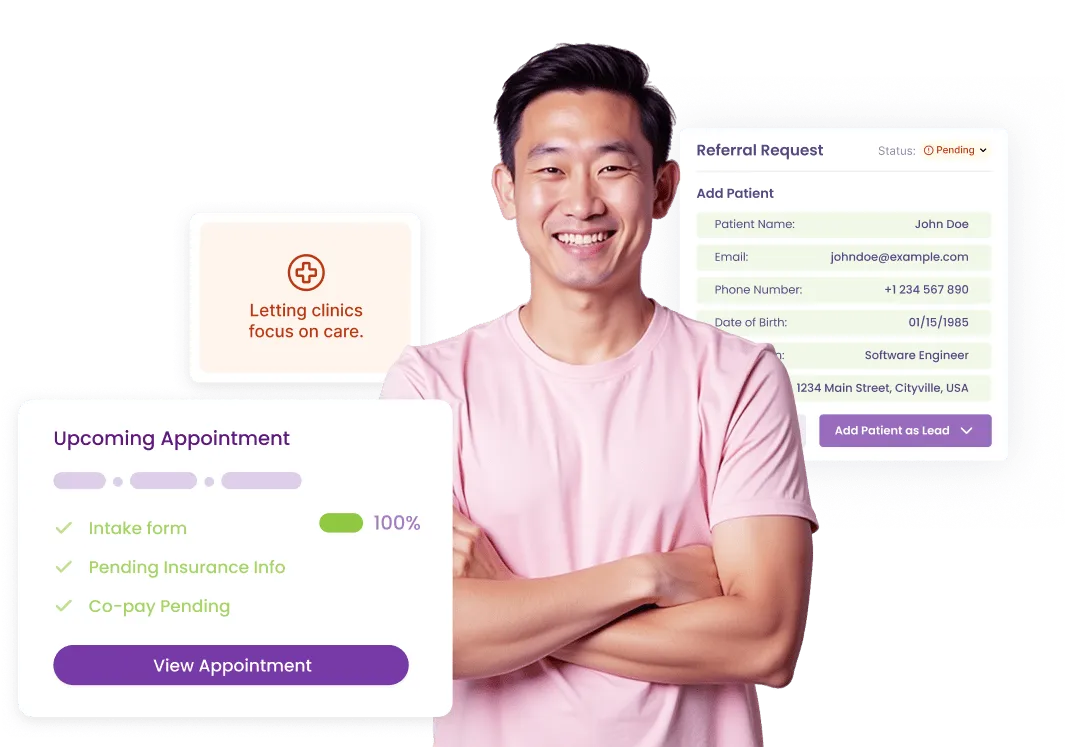H2030 – Substance Use Counseling / Behavioral Health Service
CPT code H2030 represents a distinct mental or behavioral health service, including evaluation, therapy, or care coordination.
What is CPT
H2030
?
H2030 is a specific CPT code designated for substance use counseling services. This entry provides a comprehensive overview of the clinical applications, documentation requirements, and payer considerations associated with this code. It is essential for providers to ensure that clinical notes accurately reflect evidence-based interventions and that treatment goals, interventions employed, and measurable outcomes are clearly documented. When billing for time-based services under this code, it is critical to document start and stop times to substantiate the duration of the billed service, ensuring adherence to payer guidelines and compliance standards.

Documentation Tips
Effective documentation is critical for compliance and reimbursement when billing H2030. Ensure to document the following elements:
- Start and stop times for time-based counseling sessions to support the billed duration.
- The specific therapeutic modality used, such as cognitive behavioral therapy (CBT) or motivational interviewing.
- A clear clinical focus, detailing the patient's presenting issues and therapeutic objectives.
- Patient responses to interventions, including any changes in behavior or mood.
- A well-defined follow-up plan, outlining the next steps in the treatment process.
For scored instruments, retain copies of completed assessment tools, as they may be requested for audit or review purposes. In telehealth settings, it is essential to document patient consent for virtual services and details regarding the technology platform used. Adopting a consistent documentation structure, such as the SOAP (Subjective, Objective, Assessment, Plan) or DAP (Data, Assessment, Plan) formats, can enhance audit readiness and facilitate clear communication among care providers.

At a Glance
- Service Type: Substance Use Counseling
- Use Case: Individual and group counseling sessions focused on substance use disorders
- Typical Setting: Outpatient clinics, community health centers, or telehealth services (subject to payer policy)
- Billing Unit: Per session or per intervention instrument (varies by payer and service)
- Common Pairings: 90791 (psychiatric diagnostic evaluation), 96127 (brief assessment), various psychotherapy codes
Billing Examples
Consider a scenario where a licensed counselor engages a patient in a relapse prevention counseling session. During the session, the counselor documents the patient's identified triggers for substance use, the coping skills discussed, and updates to the treatment plan based on the patient's progress. This documentation should reflect the time spent in the session, the specific interventions used, and the patient’s engagement level. It is important to note that billing for group therapy and individual counseling may require the use of different HCPCS/CPT codes based on payer guidelines, necessitating precise documentation and coding practices.
Compliance Guidelines
- Before billing, verify the payer's coverage policies and any authorization requirements specific to H2030.
- Document medical necessity thoroughly, ensuring a clear connection between the services provided and the relevant ICD-10 diagnoses.
- Utilize appropriate modifiers when required, such as modifier 95 for telehealth services, to ensure compliance with payer regulations.
- Avoid upcoding; select the code that accurately represents the documented service level and time spent. Accurate coding is essential to prevent denials and maintain ethical billing practices.
- Conduct regular audits of billing practices and documentation quality to minimize the risk of denials and improve overall compliance.
Common ICD-10 Codes
Helpful links for mental health billing and documentation
- F10.20 - Alcohol dependence, uncomplicated
- F11.21 - Opioid dependence, in remission
- F19.20 - Other psychoactive substance dependence, uncomplicated
- F10.10 - Alcohol dependence, in early remission
- F12.20 - Cannabis dependence, uncomplicated
Additional Resources
Helpful links for mental health billing and documentation
Related CPT Codes
Helpful links for mental health billing and documentation
Got questions? We’ve got answers.
Need more help? Reach out to us.
Q1: What is this code used for?
A: H2030 is utilized for counseling services related to substance use disorders. It is crucial that the documentation aligns with the clinical activities performed and supports the billed service.
Q2: Can it be billed via telehealth?
A: Yes, many payers allow telehealth billing for this code, provided the service is conducted synchronously and that proper modifiers and consent documentation are in place. Always verify the specific payer policy regarding telehealth services.
Q3: What documentation will payers request?
A: Payers typically require documentation of the time spent, therapeutic techniques or instruments utilized, patient responses, and a direct link to a covered ICD-10 diagnosis.
Q4: Can this be billed with other services?
A: Yes, when billing for multiple services, it is essential to document distinct time frames and the rationale for each service. Utilize add-on codes or follow E/M separation rules where applicable to ensure compliance.
Q5: What are common reasons for denial?
A: Common denial reasons include missing or incomplete time records, lack of documented medical necessity, incorrect modifiers, and billing beyond established frequency limits.

